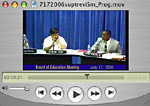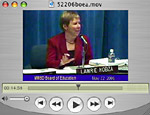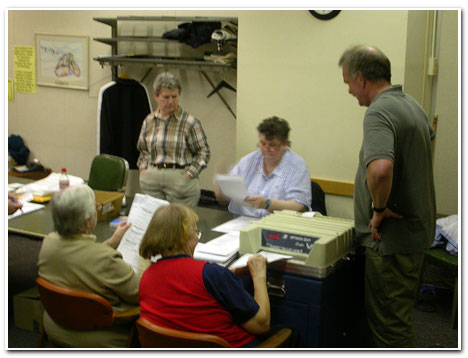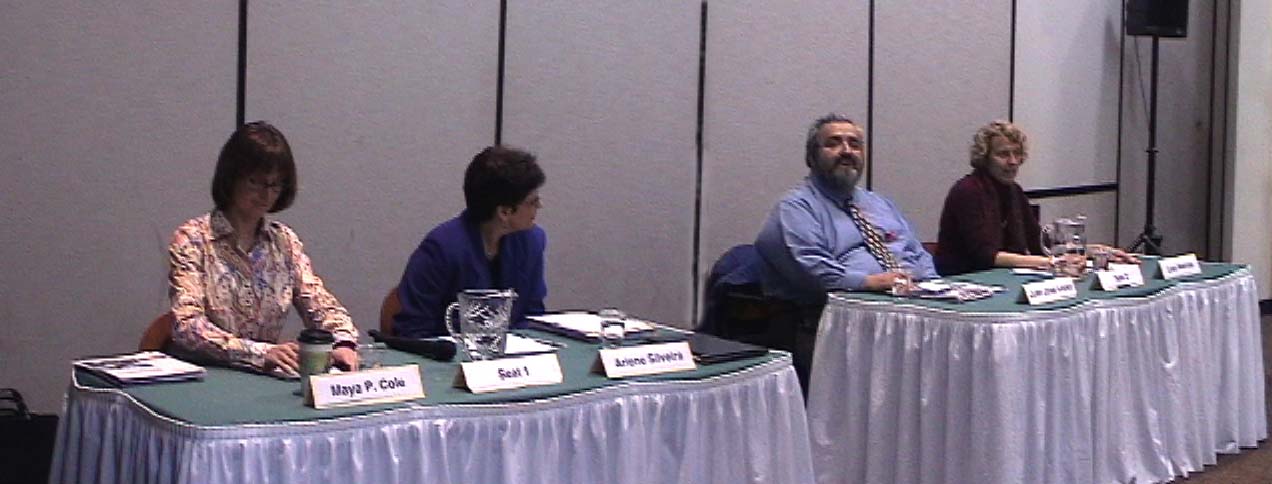Recent post from the Madison United for Academic Excellence (MUAE) list serve:
Dear MUAE Friends,
When we volunteered to oversee a District-wide “TAG” parents email list back in 2002, it was in part to help out the District “TAG” staff and in part to make the list available for explicit “TAG” advocacy efforts. We never expected that it (or we) would become explicitly political; but then, never in million years did we expect to have the crystal clear choice in BOE candidates that we have before us this year.
As fellow members of this on-line community, we think you need to know that Juan Lopez — however laudable his other views and positions may be — has the most extreme and consistent anti-“TAG” voting record of any BOE member who has served on the Board in the ten years that we have been involved with the issues. Juan once actually said to Jeff in a budget-focused BOE meeting, when Jeff was arguing in support of “TAG” funding, something like “Jeff, why should I support this? It has nothing to do with minority students.” Not surprisingly, Juan has shown absolutely no interest whatsoever in the District dropout data that we have “put out there” many times in the past three years.
In very stark contrast, we first met Lucy Mathiak almost ten years ago, when we were still relatively new Franklin ES parents. We had attended a couple of District-wide “TAG” parent meetings and wanted to do some organizing and educating within the Franklin community. Someone gave us Lucy’s name as a very well-informed east side parent and excellent speaker. We invited her to a meeting; she came; she educated us about Standard t and how to influence our school’s SIP (“School Improvement Plan”); and she inspired us to greater things, as both parents and education advocates. In a word, we were thrilled last fall when we learned that Lucy had decided to run for School Board.
It is our firm belief that if the District’s academically talented and motivated students are to have a fighting chance at having their educational needs met in our schools, they need a strong voice and representation on the BOE. They need someone on the BOE who understands their lived experience; someone who understands the issues facing the District in a way that includes them. Lucy Mathiak thoroughly understands these students, their needs, and the issues, in part, because she has lived them as a parent. As we see it, Lucy has the experience, the knowledge, the commitment, and the deep confidence to make sure that the brightest students of all colors and backgrounds are well taken care of by the Madison schools. In our opinion, no one else even comes close. For voters who care about academic excellence for all, the choice couldn’t be more clear.
VOTE FOR LUCY MATHIAK FOR MADISON SCHOOL BOARD SEAT #2 ON TUESDAY, APRIL 4.
What about the race for Seat #1? The truth is, we do not know either Maya Cole or Arlene Silveira nearly as well as we feel we know Juan and Lucy. Nevertheless, we know who we are voting for.
Consider the following paragraph from an op ed piece of Arlene’s that appeared in the Wisconsin State Journal in January:
Racial and economic achievement gaps.
The School Board must address differences in proficiency levels and graduation rates between racial and ethnic groups. In addition to continuing efforts such as School of Hope, small class sizes and cultural competence training opportunities for teachers and support staff, we must develop partnerships with community groups and provide venues for parents to come together to help the district find ways to allow all children to succeed. With the high mobility rates of some students, we must look at ways to help stabilize students’ school experience. The board cannot be proud of the district’s progress until all groups of students achieve equal success in all academic disciplines throughout their school careers.
(bold added)
Frankly, that last line scares us. We have asked Arlene more than once what she means by it, but she has yet to respond. Arlene is openly pro-heterogeneous classrooms, we know that; but her vision sounds like Camazotz, the evil place in “A Wrinkle In Time.”
In contrast, we have spoken at length with Maya about her candidacy, her vision for the BOE and the District, and her own experiences as a parent. It is our very strong impression that she has started down the road that the rest of us are already on and that — like Lucy — she “gets it.” Maya is a courageous and independent thinker who will insist on data and documentation and who will not be cowed by bullies. She understands the need for increased transparency and increased accountability on the BOE and in the District administration. She does not support cookie-cutter curricula. She does not support heterogeneous classes. Like Lucy, she wants to find ways to increase minority participation in “high end” classes, not get rid of the classes according to some misguided notion of what constitutes educational equity. If you care enough about rigorous curricula and high academic standards to be on this list serve, then Maya Cole is the one for you.
VOTE FOR MAYA COLE FOR MADISON SCHOOL BOARD SEAT #1 ON TUESDAY, APRIL 4.
There is one more reason why we are voting for Lucy and Maya on April 4. As longtime observers of the Madison School Board, we are deeply concerned about the culture of bullying and secrecy that exists in the Doyle Building and on the BOE. We feel it has paralyzed the Board and rendered it completely ineffective. We are convinced that a change of BOE membership is the only way to bring back respectable and respectful behavior — not to mention increased transparency of operations and a thoroughgoing accountability to the public — to the task of educating our children.
Many thanks for your consideration,
Laurie Frost, Ph.D., and Jeff Henriques, Ph.D.
West HS and Hamilton MS Parents
Former Franklin-Randall ES parents
Former Franklin-Randall PTSO Board member (Diversity and Community-Building Committee Chair) (LF)
West HS PTSO Board Member (Treasurer) (JH)
Advisory Board Member, Wisconsin Center for Academically Talented Youth (WCATY) (LF)
Madison United for Academic Excellence










 Unless you have a kid in the Madison schools, many of the issues discussed by the four Madison school board candidates in our weekly
Unless you have a kid in the Madison schools, many of the issues discussed by the four Madison school board candidates in our weekly 




